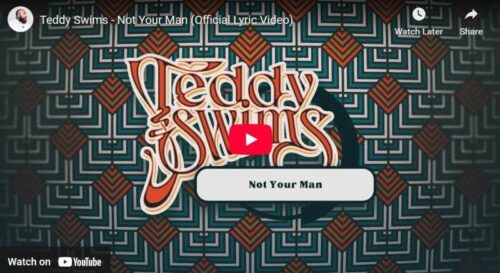Estimated reading time at 200 wpm: 11 minutes
The “Scout Mindset” is a compelling idea in modern self-improvement. Julia Galef (2021) [2] coined the term. It presents a powerful metaphor for how we process information. It contrasts the curious truth-seeker with the defensive soldier. The idea is simple, but its implications are profound. It touches everything from our relationships to scientific discovery. At its heart, the Scout Mindset asks us to change our motivation. We should move from a desire to be right to a desire to get it right.
This article explores this powerful framework in depth. We will trace its history through mindset theory. We will detail its advantages and its often-overlooked disadvantages. We will also examine practical ways to cultivate your inner scout. The article analyses case studies and untangles the knot of identity and belief. Finally, it proposes a higher-order skill: knowing when to explore and when to fight for a position.
Whether or not you agree our Fat Disclaimer applies
A Brief History of Studies in Mindset Theory
Julia Galef’s framework is unique, but it builds on earlier research. It stands on the shoulders of giants in psychology. This work examines why our minds so often lead us astray.
Fixed v growth mindset
Carol Dweck’s (2006) [1] research is a famous precursor. The Stanford psychologist studied “fixed” versus “growth” mindsets. She found that people see their talents in one of two ways. Some see them as static traits (a fixed mindset). Others see them as qualities that can be developed (a growth mindset). The fixed mindset is like a soldier’s need to defend their ego. If intelligence is static, being wrong is a direct threat. The growth mindset mirrors the scout. Challenges are chances to learn, and being wrong is a step towards getting better.
Cognitive biases and heuristics
The work of Daniel Kahneman (2011) [4] and Amos Tversky is also key. It explains why the “soldier mindset” is often our default. Their research identified many cognitive biases. These are systematic errors in our thinking. They also studied heuristics, which are mental shortcuts our brains use. Biases like confirmation bias and motivated reasoning are tools for the soldier. The Scout Mindset is a conscious strategy to counteract these powerful defaults.
The Scout Mindset
To understand the Scout Mindset, you must first understand its opposite. The Soldier Mindset is the default for most of us. We use it when our beliefs or identity are challenged.
The Soldier Mindset’s primary goal is defence. A soldier does not ask “Is this true?“. Instead, they ask “Can I believe this?” or “Must I believe this?”. Their reasoning is like a lawyer building a case. This mindset is driven by powerful human needs. These include belonging, self-esteem, and the comfort of certainty.
The Scout Mindset, by contrast, has a different goal. It wants to see the terrain as clearly as possible. The scout’s job is not to attack or defend. Their job is to understand. They are the mapmakers. An accurate map is the ultimate prize. It is the most useful tool for navigating the world. If a scout finds they are wrong, it is a success. They can improve their map and make it more accurate. This mindset is driven by curiosity, objectivity, and a desire for truth.
Advantages of the Scout Mindset
Adopting a scout’s perspective offers clear and profound benefits. It helps individuals and groups navigate life’s challenges more effectively.
Improved decision-making
This is the most direct benefit. Good decisions rely on an accurate view of reality. They should not be clouded by wishful thinking. A scout can better assess risks. They see opportunities others might ignore. They can also pivot when a chosen path is failing.
Enhanced learning and personal growth
Being wrong can be reframed. It is not a personal failure, but a successful “update“. This shift opens the door to continuous learning. A scout is more resilient to setbacks. They see them as data points, not defeats.
More productive disagreements
Our world is increasingly polarised. The Scout Mindset offers a path to better dialogue. The goal of a conversation can shift. It moves from winning a debate to improving the map. Disagreements then become less about combat and more about discovery.
Increased credibility and trust
Some people are open about their uncertainties. They listen to opposing views and can admit when they are wrong. These people are often seen as more credible and trustworthy. Their intellectual honesty signals that their conclusions are earned.
Potential Disadvantages of the Scout Mindset
Thinking like a scout has many virtues. However, it is not always the best strategy. Applying it without context can lead to real-world costs.
The social toll
Humans are tribal creatures. We bond over shared beliefs. We reward those who defend the group. A scout who questions core assumptions can be seen as disloyal. This can lead to social friction or even alienation. In leadership roles, a scout’s language can also seem weak. It may not inspire people like a soldier’s certainty can.
The psychological burden
Certainty is very comforting. Living with perpetual uncertainty is hard work. It is cognitively and emotionally taxing to constantly challenge your own ego. This can lead to “analysis paralysis.” The endless quest for a perfect map can prevent timely action.
Strategic vulnerability
Some situations are adversarial, like a courtroom debate. In these cases, a scout’s honesty is a liability. A scout might concede valid points. An opponent in a soldier mindset will exploit this. They will take every concession without offering any in return. The soldier’s moral clarity is also a better fuel for activism than the scout’s nuanced view.
Cultivating Your Inner Scout: Practical Techniques
Shifting from a soldier to a scout is not easy. It requires conscious effort and the right tools. It is a skill you can build with practice.
Practising thought experiments
Thought experiments are useful mental models. They help us step outside our own perspective. By changing a key variable, we can reveal our hidden biases.
- The Outsider Test: Ask yourself, “What would I advise a friend to do in this situation?“. This creates emotional distance. It allows you to analyse the problem on its merits.
- The Double Standard Test: Imagine a politician you oppose does something you dislike. Ask, “How would I react if my own party’s leader did the same thing?“. This reveals if your principles are consistent.
- The Selective Sceptic Test: Consider evidence that supports your view. Ask, “If this study concluded the opposite, how hard would I look for flaws?“. This shows if you are giving friendly information a free pass.
Learning to ‘update’ rather than ‘admit defeat’
The words we use shape our reality. “Admitting you were wrong” feels like a social defeat. A better phrase is “updating your beliefs.” This reframes the act from failure to success. You have successfully improved your map of reality. This is the scout’s goal.
Calibrating your confidence
Soldiers often think in certainties. Things are either 100% true or 100% false. Scouts learn to think in probabilities. Instead of saying, “I’m sure,” a scout might say, “I’m about 75% confident.” This forces you to acknowledge you might be wrong. It also prompts you to consider what evidence would change your mind.
Seeking productive disagreement
A scout must actively seek out disagreement. This helps to avoid echo chambers. The key is to do it productively. Avoid voices that are purely combative or arguing in bad faith. But be open to genuinely disruptive or revolutionary ideas. Transformative insights often come from the fringes. The challenge is to judge ideas on their reasoning, not their popularity. Find the most thoughtful counterarguments you can. This is like intellectual strength training.
Case Studies: The Scout and Soldier in Action
The true value of these mindsets becomes clear in the real world. Abstract concepts become concrete successes and failures.
In business leadership and innovation
Consider the tale of Nokia in the late 2000s. Its leadership operated with a soldier mindset. They defended their successful operating system. They saw the iPhone as a niche competitor to be defeated. They did not see it as a fundamental shift in the market. The result was a catastrophic failure to adapt.
In contrast, Amazon’s “Day 1” philosophy shows a scout mindset. It fosters a culture of constant curiosity and experimentation. The goal isn’t to defend past successes. It is to accurately map the future.
In scientific discovery
Science should be a scout-like endeavour. In practice, it is full of soldiers. For decades, geologists defended the “fixist” theory of continents. When Alfred Wegener (1915) [5] proposed continental drift, he was ridiculed. The establishment tried to debunk his claims. It took fifty years for the evidence to become overwhelming.
The discovery of CRISPR shows the scout in action. Researchers were investigating a bacterial immune system out of pure curiosity. They followed the evidence and mapped a surprising new territory. In doing so, they changed the future of biology (Jinek et al., 2012) [3].
In personal relationships and arguments
Think of a common domestic argument. The soldier mindset turns it into a trial. Each person gathers evidence for their own righteousness. The goal is to win. This rarely leads to a resolution.
A scout approaches the argument with a different goal. They want to understand the conflict. They ask questions to create a shared, accurate map. This collaborative approach is far more likely to find a solution.
Identity and Belief: Untangling Your Ego from Your Ideas
The biggest obstacle to a scout mindset is the fusion of our beliefs with our identity. When an idea becomes part of us, an attack on the idea feels personal.
Why we form belief-based identities
We forge our beliefs in our social lives. Adopting a group’s beliefs is a powerful way to signal belonging. Saying “I am a socialist” is a declaration: “I am one of you.” This provides a sense of community. Unravelling these identities can feel like unravelling our very selves.
The freedom of holding your identity lightly
The solution is not to have no identity. It is to hold our identities more lightly. View them as descriptions, not life sentences. Applying this to our beliefs is profoundly liberating. You can see yourself not as “a person who is right,” but as “a person who is trying to get it right.”
Adopting ‘scout’ itself as a new identity
A powerful strategy is to make the process your identity. Identify as “a critical thinker” or “a lifelong learner.” Your pride then comes from your commitment to good intellectual conduct. When your identity is tied to the how not the what, changing your mind is no longer a failure. It is the ultimate success.
The ‘Meta-Scout’: Knowing When to March
The tension between mindsets raises a crucial question. Which should we choose? The best approach is to cultivate a higher-order skill. This is the wisdom to know which mindset to adopt in a given situation. This is the role of the ‘Meta-Scout’.
The scout in the strategy room, the soldier on the battlefield
This military metaphor captures the ideal. During the planning phase, the scout mindset is essential. This is the time to explore and question assumptions. However, once a decision is made, a shift is required. The team must act with unified commitment. This is where the soldier’s virtues become essential.
Developing situational awareness
Knowing when to switch requires situational awareness. A meta-scout learns to assess the context. They ask about the goal, the time constraints, and the environment. Is the goal to learn or to act? Is the setting collaborative or adversarial?
Balancing conviction with curiosity
Ultimately, the goal is to integrate both mindsets. The ideal is to build conviction through a scout’s rigorous work. This creates a powerful combination. You can act with a soldier’s confidence. But you have a scout’s well-founded map. This is the foundation of true wisdom.
Conclusion
Our minds often prefer the comfort of being a soldier. We defend our beliefs and fight for our tribe. The Scout Mindset offers a different, more challenging path. It asks us to value truth over being right.
Choosing to be a scout leads to better decisions. It allows us to learn from the world and from others. This is how we grow and achieve our goals more effectively.
This path is not always easy. Questioning our beliefs can feel difficult. It can sometimes put us at odds with our social groups.
The greatest skill is knowing when to explore and when to act. We should be scouts when we are making our plans. We should be soldiers when it is time to carry them out.
Ultimately, the goal is not to win every argument. The goal is to see the world clearly. An accurate map is the most valuable tool we have for navigating our lives.
References
- Dweck, C. S. (2006). Mindset: The new psychology of success. Random House.
- Galef, J. (2021). The scout mindset: Why some people see things clearly and others don’t. Portfolio.
- Jinek, M., Chylinski, K., Fonfara, I., Hauer, M., Doudna, J. A., & Charpentier, E. (2012). A programmable dual-RNA-guided DNA endonuclease in adaptive bacterial immunity. Science, 337(6096), 816–821.
- Kahneman, D. (2011). Thinking, fast and slow. Farrar, Straus and Giroux.
- Wegener, A. (1915). Die Entstehung der Kontinente und Ozeane Theoriginofcontinentsandoceans. Friedrich Vieweg & Sohn.



